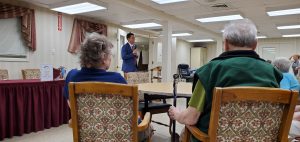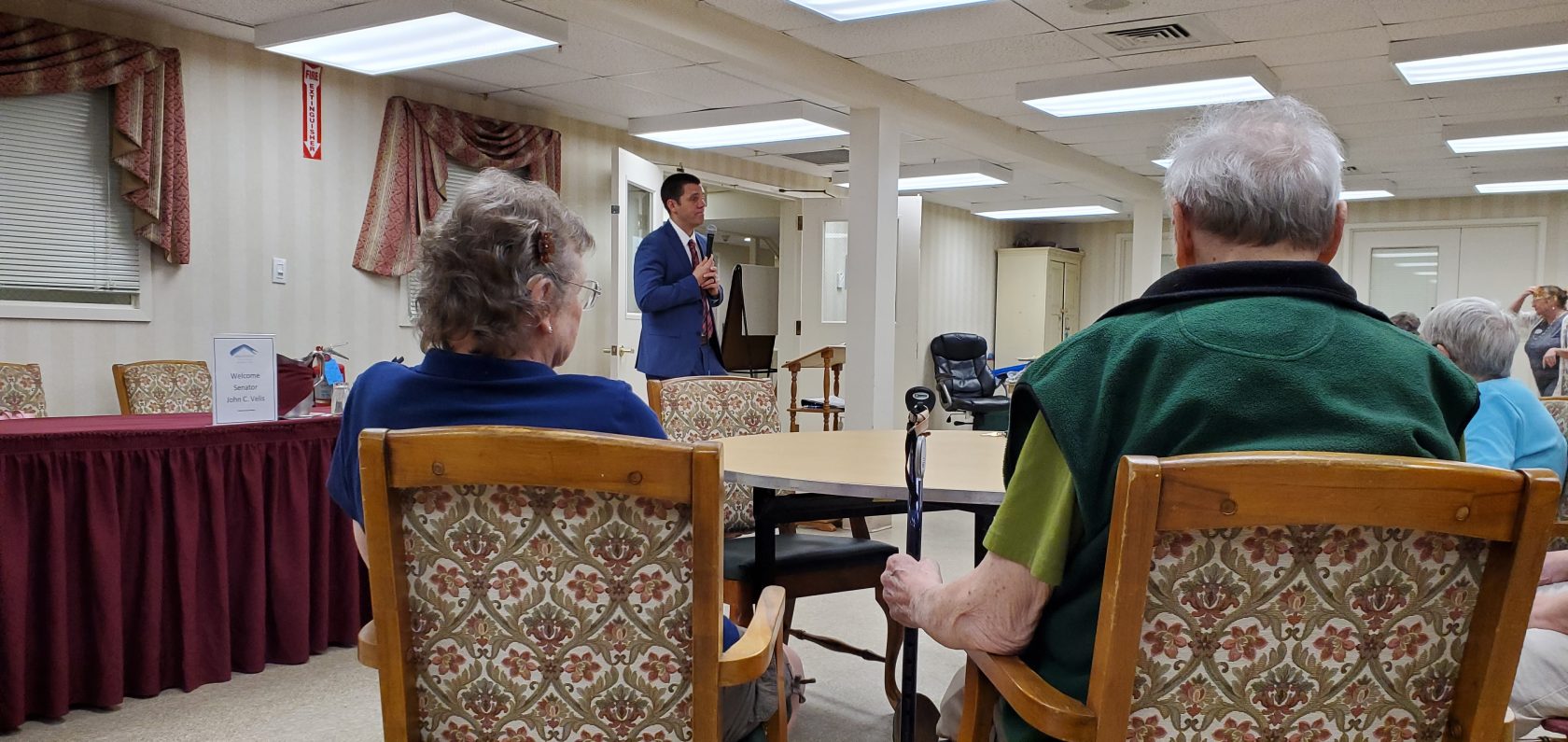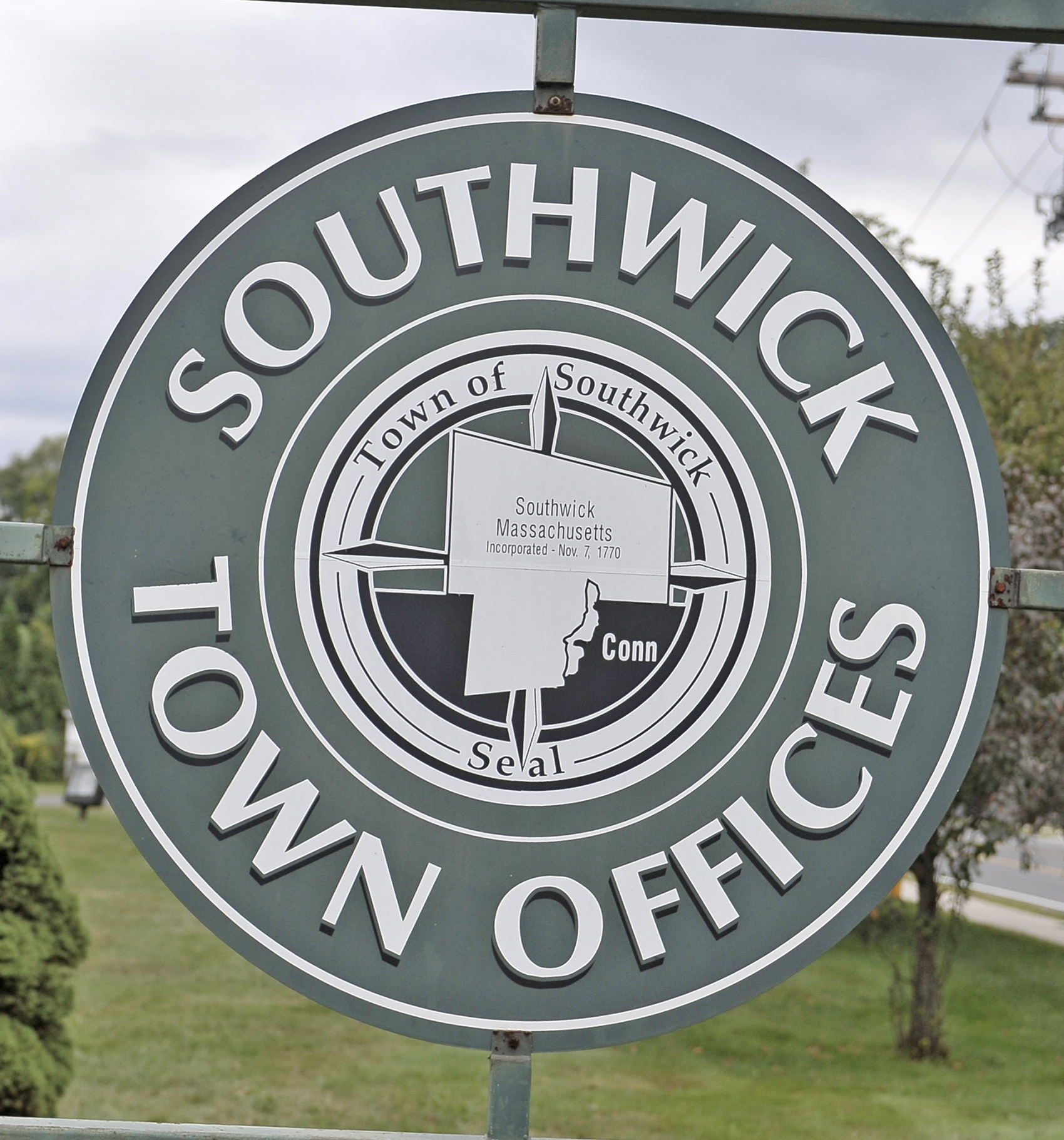
Two residents of The Cottages at Southwick Village listen closely as State Sen. John C. Velis engages in a conversation with their fellow residents about the proposed Carvana project which has drawn controversy over the last two months. (PETER CURRIER/THE WESTFIELD NEWS)
SOUTHWICK- State Sen. John C. Velis discussed the proposed Carvana project with senior citizens at The Cottages at Southwick Village July 16 as the Planning Board prepares to continue the public hearing July 20.
The Southwick Planning Board is tasked with considering a special permit for a Carvana processing facility on College Highway and Tannery Road that could increase traffic by 2.600 trips per day as well as use 9,000 gallons of water per day and employ 400 people.
After some discussion of state and global events, Velis pivoted towards Carvana, which many of the residents were eager to talk about. While Velis never specifically said he was for or against the proposed Carvana project, he tried to help brainstorm with residents on the limited avenues they may have to stop the project.
He said that there was little that could be done on the state level to oppose the project.
“[The Planning Board’s] ability to analyze it and vote on it is based on certain criteria on whether or not we can do it,” said Velis. “We have researched ad nauseam at the state level, if there is anything we can do as state lawmakers and state stakeholder to do anything, to weigh in on this program.”
He said Carvana’s plan, at least as far as he and state officials can see, is passing all of the tests it needs to from the state’s perspective in order to be built.
Velis said he received calls from the mayors of some communities who are concerned about how the Carvana project may affect cities and towns surrounding Southwick. Westfield’s City Council voted to monitor the project as it is heard by the Southwick Planning Board, and Agawam’s City Council voted to oppose the project. Velis said that it is good that other communities are expressing their concerns, but that those two resolutions do little to stop the project from happening.
He said he was having conversations about how to mitigate the traffic impact Carvana may have if the vehicle processing facility is built, a chief concern of the project’s opponents. If the project is approved by the Planning Board, Velis said that those opposed to it shouldn’t “just throw in the towel” but instead work to actually mitigate the problems they are concerned about.
When Velis asked who in the room was opposed to the Carvana project and who was in favor, about two dozen residents raised their hands in opposition, while one lone resident expressed that he was actually in favor of the project. A remarkably civil back-and-forth took place between the lone resident in favor of the project and the rest of the room on the pros and cons of the project.
One resident said that the fact that Route 57, a state highway that goes from Springfield to Agawam, and never reaches Southwick is a major factor in what opponents believe will be a significant traffic impact on Southwick, Agawam, and Feeding Hills. Velis said that the Cowles Bridge project in Westfield will be a factor as well.
Cowles Bridge is currently under construction and was imposed with a vehicle weight limit that would prohibit many of Carvana’s car-carrying trucks from passing over. Westfield City Engineer Mark Cressotti said that the weight limit will remain in place until the structure is complete, and any overweight traffic will be rerouted over Horton’s Bridge on Granville Road.
Another resident said that she thinks the current used-car market is “a flash in the pan” and suspects that in a few years the market will no longer be tenable for Carvana, and the facility will close, leaving Southwick with 66 acres of asphalt.
Velis concluded the conversation by asking what the residents want their state senator to do about the project at this point, with the caveat that there is nothing in Massachusetts state law that prohibits the project as it stands today.
One resident said that the fact that Velis, as an elected official, was there having a civil conversation about it was “a great thing.”



